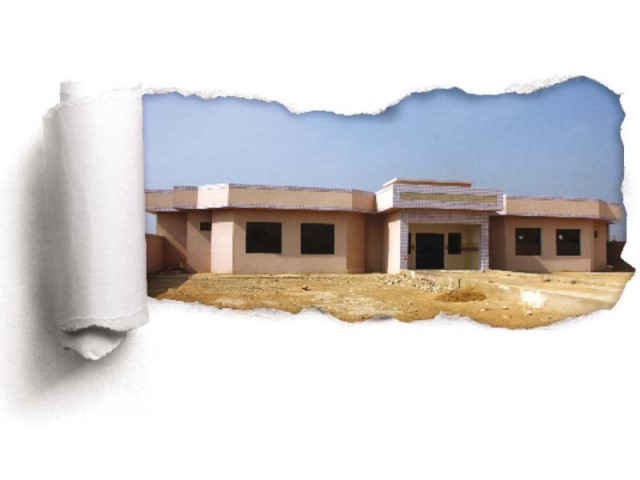Diving into Mubarak Village: When nature calls, there is nowhere to go
Historic village of Karachi known for the best scuba diving spots lacks basic healthcare facilities

Historic village of Karachi known for the best scuba diving spots lacks basic healthcare facilities. PHOTO: ATHAR KHAN/EXPRESS
Mubarak Village, the city’s historic fishing village known for the best scuba-diving spots, is severely lacking in basic health facilities with a large number of people being forced to defecate in the open.
In 2010, the Sindh government had announced that this village will be turned into a modern one. A sewerage system was also built and traces of it are still visible. It does, however, fail at its job.
“Washrooms need more water and it is better to defecate in the open than to add another burden of bringing more water,” said a resident, Dad Bux. “We know it is not better for our health and could spread disease but we don’t have another option.”
It is fairly common to see women and men answering nature’s call in the open while children also play in the vicinity. “This practice is very common here so no one hesitate to go to the toilet in the open,” Dad Bux explained.
Lack of hospitals
Given the unhygienic implications of defecating in public, residents are more prone to diseases but there are no health facilities nearby. If someone catches a cold or needs to treat an injury, they are forced to make a trip to the city centre.
The village on the outskirts of the city had its first dispensary built in 1996. The two-room facility was inaugurated by the former provincial minister for public health engineering, Lal Bux Bhutto, but it was never made functional until it was demolished in October last year.
A second health facility was established near the dispensary but it has yet to start working. With indigo-coloured, block-print marbles, glass doors and windows, the building is currently home to animals and other wild species.
The health officials are aware of the crisis facing Mubarak Village but fail to offer more than empty promises. “There is no staff for this hospital,” confirmed Karachi’s Health EDO Dr Zafar Ejaz. “I am hoping the issue will be resolved during this financial year,” he said.
The area’s MPA, Muttahida Qaumi Movement’s Muhammad Yousuf Shahwani, appears to have found a magic wand. “The hospital will be ready for villagers after Eidul Fitr,” he promised.
In the meantime, the residents of Mubarak Village take their loved ones to the closest health facilities in main city areas. They usually head over to dispensaries in Mauripur, or Bantwa Memon Hospital, Kharadar General Hospital, Kutyana Memon Hospital, Civil hospital or Jinnah Postgraduate Medical Centre in case of emergencies. If there is no way for them to take the patient to a health facility, they have no choice but to treat them on their own.
“Most people just take tablets [painkillers] and go to the hospital only when the condition is serious,” said a resident, Khuda Ganj Shaad, as he recalled their ordeal nonchalantly. The nearest hospital is over 35 kilometres away from this village, he pointed out.
Traditional birth attendants
For pregnant women, the only angel in disguise is Amma Fareeda - the lone midwife in Mubarak Village. Amma, a traditional birth attendant, is well-known in the vicinity as an expert for all birth-related complications and has been in the profession for the last 15 years, which has earned her the title of ‘Amma’ [mother].
There are an average number of eight deliveries a month, she said. “Women in other villages also call me,” she said, adding that she invokes Allah’s help when she comes across complicated cases. “I immediately refer them to the city when the case is too complicated,” she added.
Fareeda works free of charge. “I don’t work for money but there are people who willingly pay me sometimes,” she said. During her years as the only midwife, Fareeda has observed that more of the women in the area are anaemic. “There is [also] no concept of contraception,” she said. “The women get pregnant within a few months and it is a burden on the entire family.”

Until the government steps in to provide healthcare, Fareeda vows to continue her work. “My burden will lessen if there is a maternity home here,” she said. “I wish [for a] complete hospital for our women before my death.”
Published in The Express Tribune, July 23rd, 2015.


















COMMENTS
Comments are moderated and generally will be posted if they are on-topic and not abusive.
For more information, please see our Comments FAQ